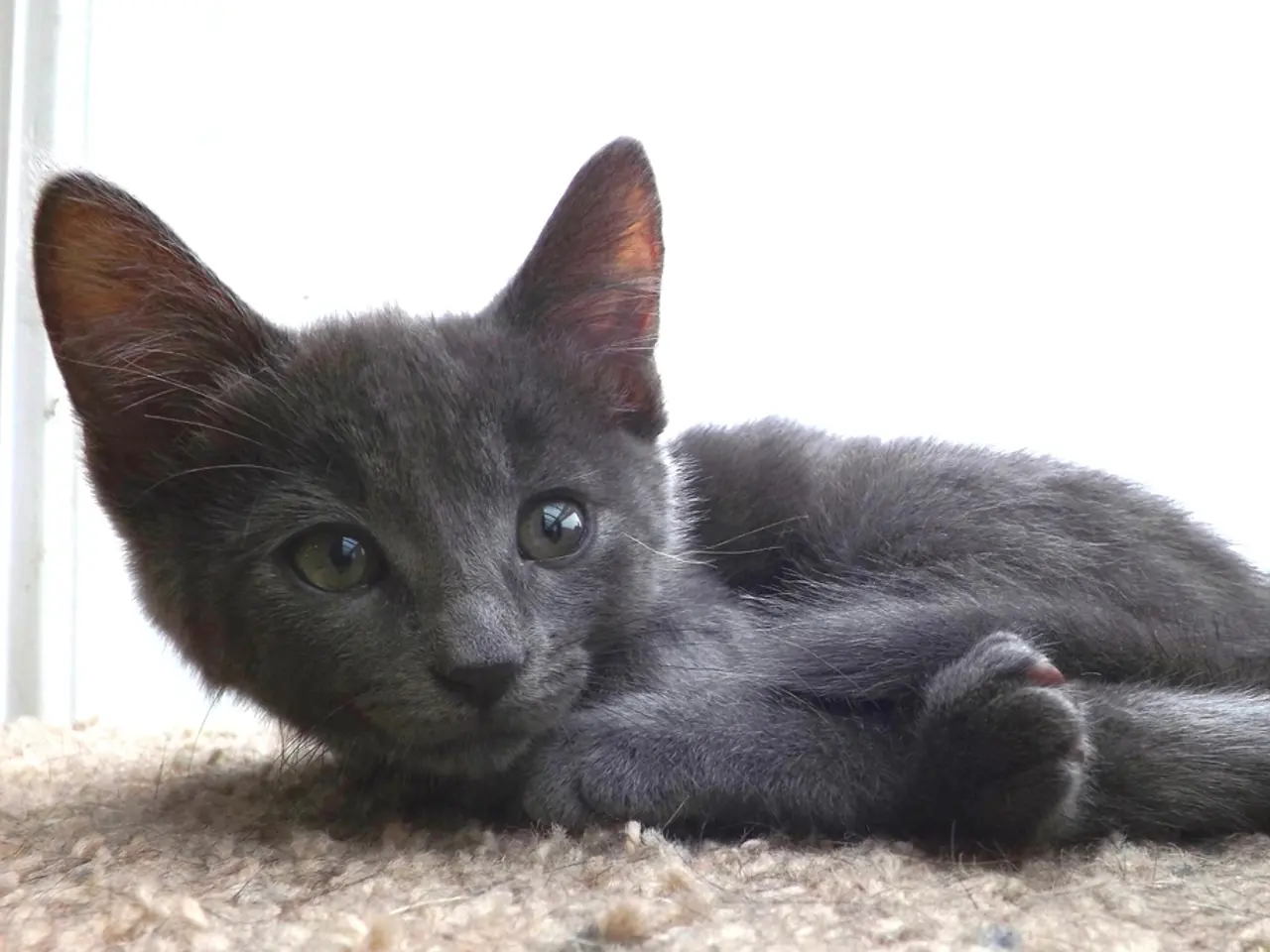Common Feline Ailments: Symptoms and Remedies
In the first year of a kitten's life, navigating their health can be challenging, with various illnesses potentially affecting them. It's essential to be aware of common signs of sickness and seek prompt veterinary attention to ensure the best possible outcomes.
Recognising Kitten Illnesses
To recognise common illnesses in kittens, watch for signs such as lethargy, poor appetite, abnormal stools, vomiting, coughing, sneezing, eye or nasal discharge, pale gums (indicating anemia), visible stomach bulging (which may suggest worms), and skin or coat abnormalities. Eye issues like clear or yellow discharge and skin problems (e.g., itching, redness) can also signal illness. A general symptom checklist includes changes in behaviour, eating or drinking habits, and visible physical signs like swollen lymph nodes or respiratory distress.
Common Kitten Illnesses
Common kitten illnesses to watch out for include Upper Respiratory Infections, parasitic infestations such as fleas, intestinal parasites (Roundworm, Hookworm, Tapeworm), and ear mites.
Parasitic Infestations
Vets typically recommend dewormers and parasite preventives for managing parasitic infestations. Early stool testing and regular parasite control are essential. Fleas can cause anemia, skin irritation, and infection, and can transmit pathogens that can make cats sick or be passed to people, like the plague. Tapeworms are ribbon-like parasites that attach to the intestine and are typically acquired by swallowing infected fleas during grooming. Ear mites, caused by the mite Otodectes cynotis, are a common issue in kittens, manifesting as dark, coffee ground-like ear discharge, intense itching and scratching, frequent head shaking, irritation, fur loss, sores, and scabs around ears and head.
Upper Respiratory Infections
Upper Respiratory Infections (URIs) are caused by viruses like feline herpesvirus and feline calicivirus and may require additional treatment with antibiotics if a bacterial infection is involved. Kittens have a higher risk of becoming extremely ill or dying from feline panleukopenia (feline distemper), a serious illness caused by the feline parvovirus (FPV) and much less common due to widespread vaccination, but outbreaks still occur.
Feline Leukemia Virus (FeLV)
FeLV is a common virus, with a 3 percent prevalence in the U.S. and Canada. Kittens are particularly susceptible to progressive FeLV infections, which carry the poorest prognosis. FeLV suppresses the immune system, leading to opportunistic infections and certain cancers, especially lymphoma. There is no cure for FeLV, but diligent preventative care and managing FeLV-related illnesses can help cats live comfortably.
Treatment
Treatment depends on the specific illness. For parasitic infections, vets usually prescribe dewormers and parasite preventives. Respiratory and eye infections often require veterinary diagnosis and may need antibiotics or supportive care. FeLV requires regular vet visits, a nutritious diet, stress reduction, prompt treatment of infections, and preventive parasite control. Advanced cases may require chemotherapy or palliative care focused on comfort and quality of life.
Preventative Care
Early intervention improves outcomes and prevents progression of diseases common in kittens. Initial vet visits should include tests for transmissible diseases (FeLV, FIV), parasite screening, and vaccinations. The FeLV vaccine is recommended for kittens due to their high susceptibility to progressive infections.
Managing Vet Expenses
Options like pet insurance and CareCredit credit card can help manage vet expenses for kitten care.
Sources
- PetMD new kitten checklist with vet visits, testing, and parasite control recommendations [3]
- PetCareRx warning signs in cats including lethargy, pale gums, eye discharge, and worms [4]
- Paws at Peace guidance on Feline Leukemia Virus treatment and palliative care [5]
- Mental health is equally important for our pets, and pet insurance often covers visits to health-and-wellness centers for behavioral assessments and treatments.
- In understanding pet health, science has continually advanced our knowledge of common kitten illnesses, such as Upper Respiratory Infections and parasitic infestations like fleas and ear mites, which require prompt veterinary attention.
- A comprehensive approach to pet health includes not only physical ailments but also mental health and wellness, as well as preventative care such as regular vet checkups, vaccinations, and parasite control to ensure the overall well-being and longevity of our beloved feline companions.




